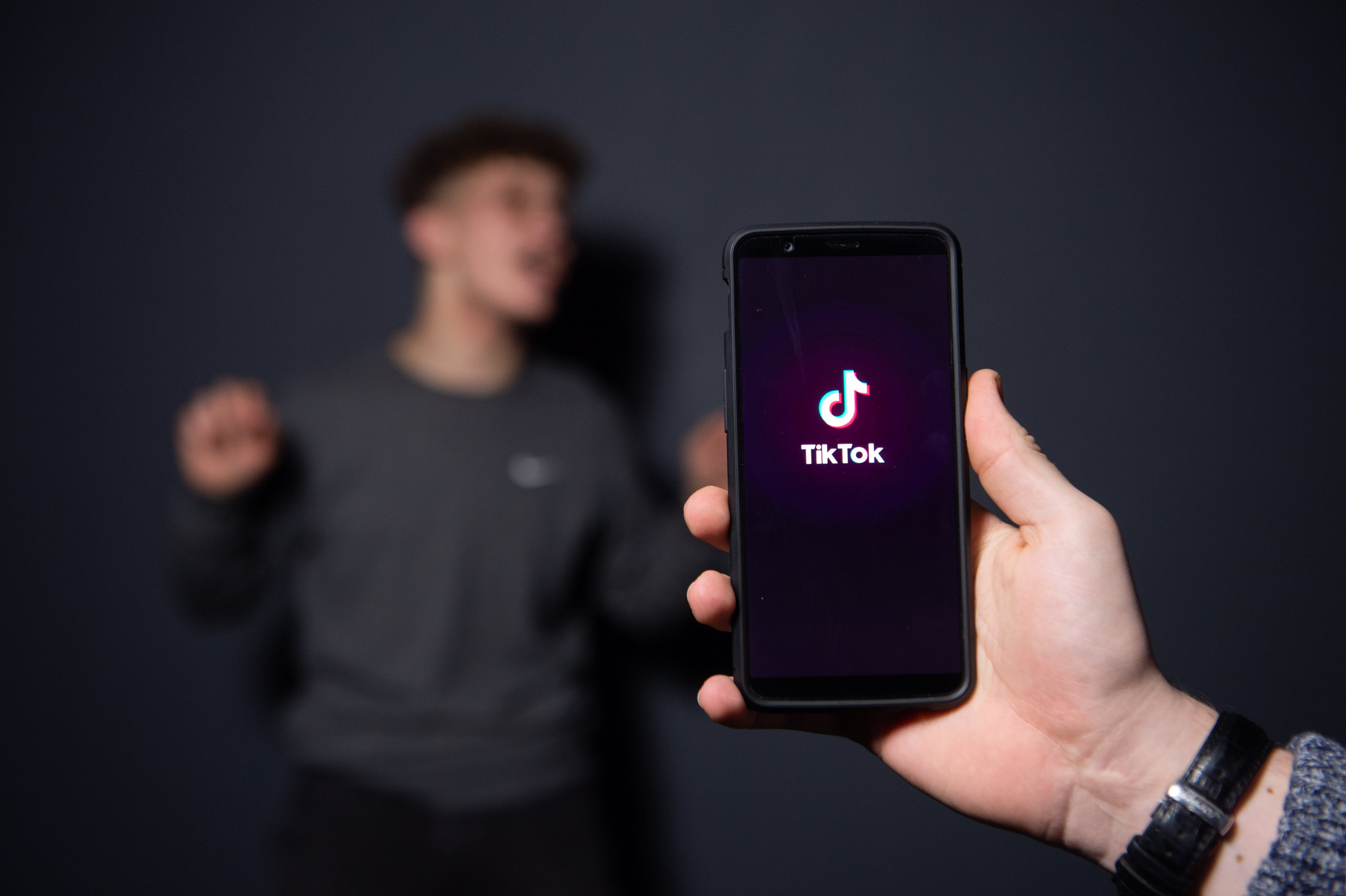SOCIAL MEDIA NEWS
TikTok users offer financial advice during the coronavirus pandemic
An AFP collaborator poses for a picture using the smart phone application TikTok on December 14, 2018 in Paris. – TikTok, is a Chinese short-form video-sharing app, which has proved wildly popular this year. (Photo by – / AFP) (Photo credit should read -/AFP via Getty Images)-/AFP | GettyImagesBecca Ngo didn’t intend to get her financial advice from TikTok. Rather, the 21-year old was searching for book recommendations on the social media app, which is known for serving up 60-second dance routines. But after “favoriting” a video about a financial book, the TikTok algorithm did its thing.Ngo, who works in client support for a financial services company in Florida, recently started getting recommendations to watch all sorts of personal finance videos. That’s how she learned about Roth 401(k) plans, which let savers invest after-tax income into a retirement account while getting matching funds from their employer. Ngo took what she learned to her bosses, and convinced the company to begin offering it to employees.”I always knew that saving was important,” said Ngo, adding that her aunt had opened her personal retirement account. “But I didn’t know anything about home buying, 401(k) or investing.”TikTok, which has blown up in popularity in the last two years to become one of the world’s most popular social platforms, has gained even more steam during the coronavirus pandemic, with so many people at home and in need of entertainment. The app, operated by Chinese tech giant ByteDance, allows users to create short videos and overlay voices or music.It’s been a huge hit among Gen Z (generally defined as people born between 1995 and 2015), reaching 2 billion downloads in April. In May, ByteDance surpassed a $100 billion valuation in private markets, according to Bloomberg, more than triple Snap’s public market value. With so many users and so much knowledge about their interests, TikTok’s algorithms are directing people to a host of unexpected topics.Screenshot of a TikTok from Ashley BrambilaTikTokThe financial advice community on TikTok remains relatively niche, but it’s growing. As of mid-June, the #investing tag had racked up 278.1 million views, while variations of investing (#investing tips, #realestateinvesting and #investing101) added up to millions more. Other categories are much bigger. The hashtag #homechef brought in 1.6 billion views and #maincharacter, a new meme that parodies movie montages, is at 2.3 billion. Financial topics, typically of less appeal for consumers who want to be entertained, have gained particular relevance today because of the recession caused by the pandemic. Unemployment is at its highest since the Great Depression, and jobs in travel, hospitality, food and retail are likely lost for the foreseeable future. So videos that offer financial wellness tips in a consumable and comfortable way are resonating with people who are sheltered in place and struggling.”There’s been a lot of people who needed a friendly reminder of the basics,” said Ashley Brambila, a certified public accountant who shares videos on TikTok under the username @ash.brambila. Brambila, who lives in Nevada, also has videos that talk about debt and savings.Still, some experts warn that while TikTok may be a good way for young people to learn general financial tips, content creators could be glossing over important topics without conveying the risks that come with investing.”I don’t have too much of a gripe with going into basics,” said said Doug Boneparth, a financial advisor and president of Bone Fide Wealth in New York. “My reservations come into play if someone makes it light work or says it’s easy to make money in the markets. I can assure you that it’s not.” Boneparth said he’s worried about TikTok accounts, some with thousands of followers, that promote day trading and get-rich quick ideas.One account that goes by the moniker @TheBusinessKid suggested buying hard-hit stocks like airlines and cruise lines, telling viewers that those industries will “bounce back after this is all sorted out.” CNBC reached out to the account owner through TikTok and Twitter, but did not immediately receive a response.A screenshot of a TikTok that recommends stocks.TikTokTikTok did not respond to a request for comment about its policies. In its community guidelines, the company says it will remove content that “promotes fixed betting, get-rich-quick schemes, or any other types of scams.” But, it doesn’t have rules against providing investment tips, even from users who aren’t qualified to offer advice.’I don’t have the money to hire someone’After graduating from Boston College this year, Matthew Alvarado found himself with two months of free time before starting his first full-time job. He said that for the first time in his life he’s been able to get educated on savings, retirement accounts and work benefits. Like Ngo, he turned to TikTok.Alvarado is one of the 69,000-plus followers of an account called @themoneyceo. The person behind the account is Ryan Francis, who isn’t a financial planner or adviser. Francis notes in his bio that his commentary is “not advice.” His videos cover topics like cutting down debt, getting into investing through an index fund and buying homes.Alvarado said he finds Francis’ videos to be a good starting point because a lot of young people don’t have good sources for this kind of information and can’t afford to pay for official help.”I don’t have the money to hire someone,” Alvarado said. “I imagine down the line I can go about hiring the necessary people who are certified. But with the pandemic, during all of this downtime, this is a good resource.”Francis told CNBC that his account saw a pop in engagement in the first six weeks or so after the Covid-19 crisis began, but it’s slowed down a bit of late. He said that he thinks viewers on TikTok are more likely to absorb practical tips, like how to manage a savings account, as opposed to pitches involving risky stock bets.”You have a lot of these really bad financial gurus that are out there trying to teach people gambling, essentially,” Francis said. “These are accounts that are really dangerous for a lot of people. But I think a lot of people do see through it. The thing is, I have a lot of faith in the next generation.” WATCH: The rise of TikTok: 3 trades
Source link













